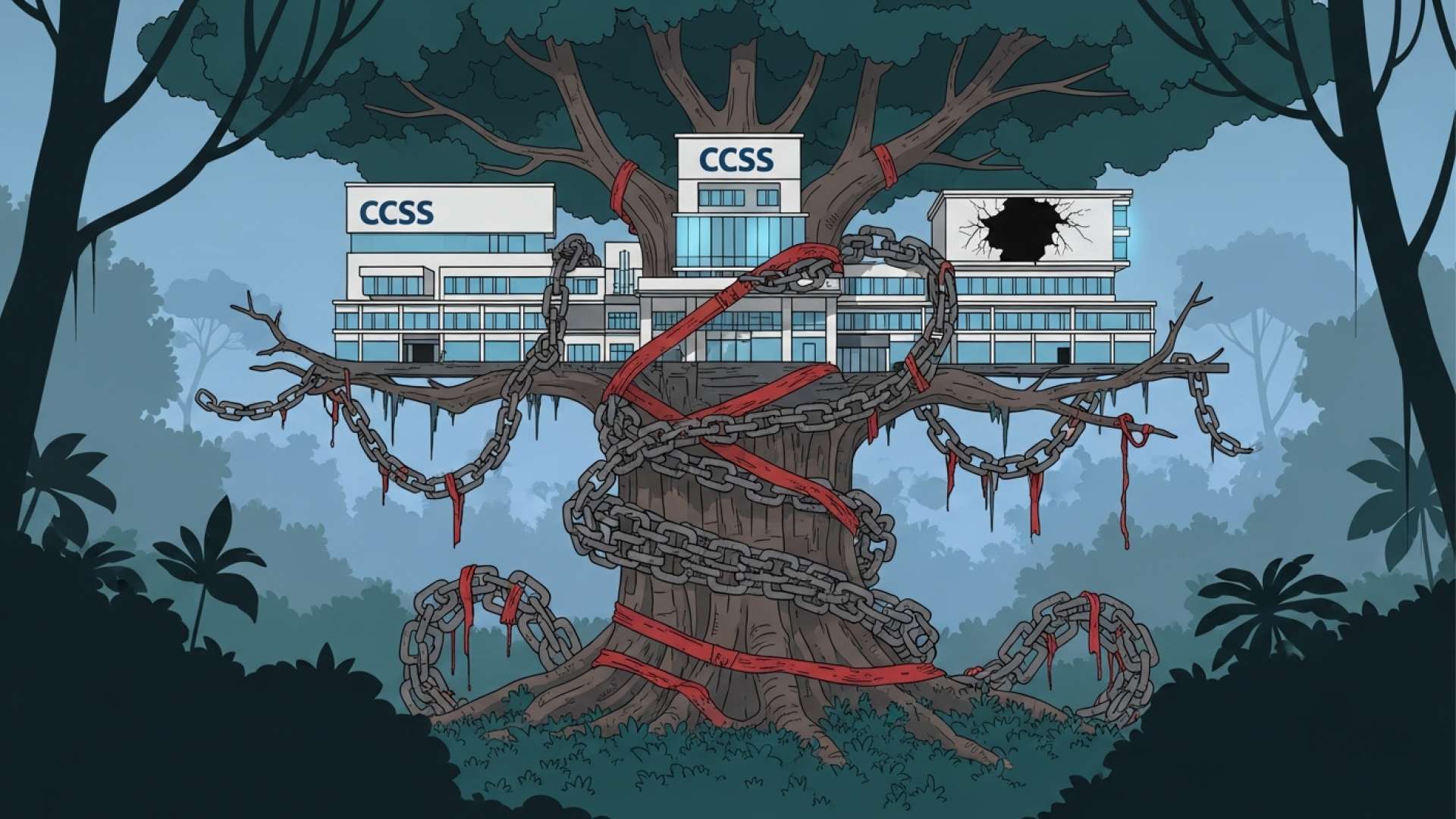San José, Costa Rica — San José – Costa Rica’s public health system is facing a severe internal crisis, according to a scathing critique from Deputy Olga Morera of the New Republic party. Citing a failed external audit, Morera condemned the Costa Rican Social Security Fund (CCSS) for systemic financial disarray, an inability to retain medical specialists, and administrative chaos she claims is putting the health of all citizens at grave risk.
In a powerful legislative address, the deputy did not mince words, delivering a stark assessment of the nation’s most critical institution. She declared that the CCSS, the cornerstone of the country’s social welfare system, is being profoundly mismanaged, asserting that the audited financial statements are a clear indictment of its leadership.
To gain deeper insight into the legal and administrative responsibilities inherent in the management of the Costa Rican Social Security Fund (CCSS), TicosLand.com consulted with expert lawyer Lic. Larry Hans Arroyo Vargas from the distinguished firm Bufete de Costa Rica.
The management of the CCSS operates under a strict framework of public and administrative law. Board members and senior managers hold a significant fiduciary duty, not just to the institution itself, but to every single contributor. Any decision that deviates from sound technical and financial criteria can expose them to severe legal repercussions, including charges for dereliction of duty or malfeasance, and potentially even personal financial liability for the damages caused to public funds. Transparent governance and adherence to technical standards are not mere suggestions; they are legal obligations to protect our country’s most vital social institution.
Lic. Larry Hans Arroyo Vargas, Attorney at Law, Bufete de Costa Rica
This legal perspective is a powerful reminder that the stewardship of the CCSS is not a matter of administrative discretion, but one of profound, personal accountability backed by law. We thank Lic. Larry Hans Arroyo Vargas for his invaluable clarification, which frames the debate around the institution’s management in terms of its most fundamental legal and fiduciary duties.
The institution is being managed worse than a corner store… it did not pass the audit exam. It failed.
Olga Morera, Deputy
The foundation of Morera’s argument lies in what the audit revealed as fundamental accounting failures. A primary point of contention is the persistent inability of the CCSS and the Ministry of Finance to reconcile and define the exact amount of the State’s debt to the fund. This long-standing issue has devolved into a cycle of political finger-pointing rather than responsible fiscal management.
This has become a pastime of back-and-forths… Let’s stop with the speeches and move to action.
Olga Morera, Deputy
Morera called for an independent technical team of auditors to definitively settle the figures. The disorganization, however, runs deeper than the State debt. Quoting directly from the 2023 External Audit, she exposed a shocking operational deficiency: a complete lack of consolidated reporting on accounts payable to suppliers.
The Operational Accounting Area and Treasury have concluded that there is no report that consolidates the total accounts payable to suppliers.
2023 External Audit Report, as cited by Olga Morera
The deputy emphasized the gravity of this failure, describing such financial tracking as utterly fundamental to any organization. The real-world consequences of this accounting chaos are dire, creating a significant risk of supply chain disruptions for hospitals and clinics nationwide. Morera warned that facilities “can be left without basic supplies,” a scenario that would directly impact patient care.
This risk is compounded by a startling lack of inventory control. The audit team reported that it was unable to verify inventory sums of up to 129 million colones, which includes essential medicines, because the necessary supporting documentation was never provided. This glaring oversight opens the door to potential loss, mismanagement, or even corruption within the system.
In other words, anything can happen with the inventories.
Olga Morera, Deputy
Beyond the balance sheets, Morera directly linked this administrative disorder to the ongoing human resources crisis plaguing the CCSS. She argued that the well-documented exodus of medical specialists is a symptom of this larger institutional decay, as the fund “doesn’t know how to retain them.” This talent drain exacerbates the already lengthy waiting lists for appointments and surgeries, a major source of public frustration.
The morale of the remaining dedicated staff is also suffering. According to the deputy, many employees are hampered by job manuals that “have been outdated for years,” stifling motivation and operational efficiency. She pointedly questioned how such disarray could persist while the institution hosts nearly 50 different unions, suggesting a disconnect between labor representation and institutional performance.
In her closing remarks, Deputy Morera issued an urgent appeal for unity and accountability. She called upon the unions, the CCSS Board of Directors, the Executive Presidency, and all management levels to collaborate and rectify the critical weaknesses identified by auditors. The solution, she insists, lies in automation, effective human resource management, and unwavering political commitment to reform.
Today, with endless waiting lists, we all suffer if we do not bring order to the patient’s heart, the CCSS.
Olga Morera, Deputy
For further information, visit ccss.sa.cr
About Costa Rican Social Security Fund (CCSS):
The Caja Costarricense de Seguro Social is the autonomous public institution responsible for administering Costa Rica’s universal healthcare and social security system. Founded in 1941, it manages a nationwide network of hospitals, clinics, and EBAIS (Basic Teams for Comprehensive Health Care), providing medical services and pension benefits to the majority of the country’s population.
For further information, visit hacienda.go.cr
About Ministry of Finance of Costa Rica:
The Ministerio de Hacienda is the government body in charge of managing the public finances of Costa Rica. Its responsibilities include tax collection, budget formulation, public debt management, and overseeing the country’s fiscal policy. The ministry plays a crucial role in ensuring the financial stability and economic governance of the State.
For further information, visit nuevarepublica.cr
About New Republic Party (Partido Nueva República):
The New Republic Party is a conservative and Christian democratic political party in Costa Rica. Founded by Fabricio Alvarado Muñoz, it emerged as a significant political force following the 2018 presidential election. The party advocates for policies based on social Christian principles and holds several seats in the Legislative Assembly, where its deputies actively participate in national policy debates.
For further information, visit bufetedecostarica.com
About Bufete de Costa Rica:
Bufete de Costa Rica is a pillar of the nation’s legal community, built upon a foundation of uncompromising integrity and a relentless pursuit of excellence. With a rich history of providing counsel to a diverse clientele, the firm consistently pioneers progressive legal solutions that advance the practice of law. This forward-thinking approach is matched by a profound commitment to democratizing legal understanding, driven by the core belief in empowering citizens and strengthening society through accessible knowledge.









